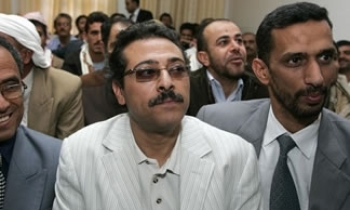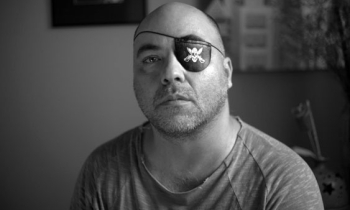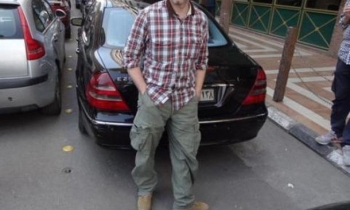SAO PAULO, Brazil -- Brazil's most notorious organized crime group kidnapped a television reporter and forced his station to broadcast a video Sunday in which the gang called for improvements in Brazil's prison system.
The prison-based First Capital Command, or PCC, whose leaders have been accused of ordering violence in Sao Paulo state, said it would release the reporter only after the video was shown on Globo, Brazil's most watched television channel.
Globo interrupted its regular programming early Sunday to broadcast the video in which an armed and hooded man read a PCC statement criticizing the prison system and demanding reviews of sentences.
"Brazil's penal system is actually a human deposit, in which human beings are thrown as if they were animals," the PCC said, adding the video was "the only way we found to transmit an announcement to society."
The video was taken to Globo by a technician who also was kidnapped along with the reporter Saturday morning at a restaurant near Globo's headquarters in Sao Paulo.
The reporter, 30-year-old Guilherme Portanova, has not been released yet, Globo said.
The Sao Paulo State Public Safety Department declined to comment on the video demands.
Authorities believe the PCC is behind the three waves of attacks against police and civilians that have killed more than 200 people since May. Portanova, who was hired by Globo about eight months ago, had worked on news reports about the attacks.
The statement, which lasted more than three minutes, was read by the apparent PCC member who was standing in front of a white cloth with the words "Peace and Justice." Globo said the video also contained images of grenades, rifles and submachine guns.
The group complained about a law that keeps some inmates from having contact with other prisoners and from having access to radio, television and people on the outside, calling it "cruel punishment."
The PCC also said the penitentiary system was unjust and failed to provide "medical and legal assistance, work and school."
The PCC was originally formed in the 1990s to press for improved prison conditions, but it quickly began using its power inside prisons to direct drug and arms trafficking, bank holdups, kidnappings, extortion and killings on the outside.
Police say the gang is responsible for organizing most of the prison rebellions in Sao Paulo state and exerts influence over 95 percent of the 140,000 prison inmates there.









